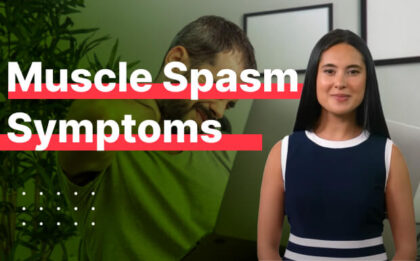Muscle spasms can vary. Some are painless, while others can be quite uncomfortable. You might feel your muscle jumping or twitching briefly. In some cases, the entire muscle can cramp up, causing pain, often in the legs. If muscle spasms are linked to neurological conditions, additional symptoms may arise: Back, neck, or head pain Cramping Muscle weakness Numbness Tingling Tremors Paralysis Cramps Sleep disturbances Seek medical advice if you experience these symptoms.
When dealing with muscle spasms, there are effective treatments to ease discomfort: Stretch and Massage: Gently stretch and massage the affected muscle, holding the stretch for 20-30 seconds to relax it. Heat or Cold: Apply heat (warm towel) to relax the muscle, or use cold (ice pack) to numb and reduce inflammation. Stay Hydrated: Drink water and eat potassium, magnesium, and calcium-rich foods for electrolyte balance. Over-the-Counter Meds: Consider non-prescription pain relievers following recommended doses and consult a healthcare professional. Physical Therapy: For persistent spasms, a physical therapist can provide exercises to strengthen and stretch affected muscles, reducing spasm frequency and intensity.




